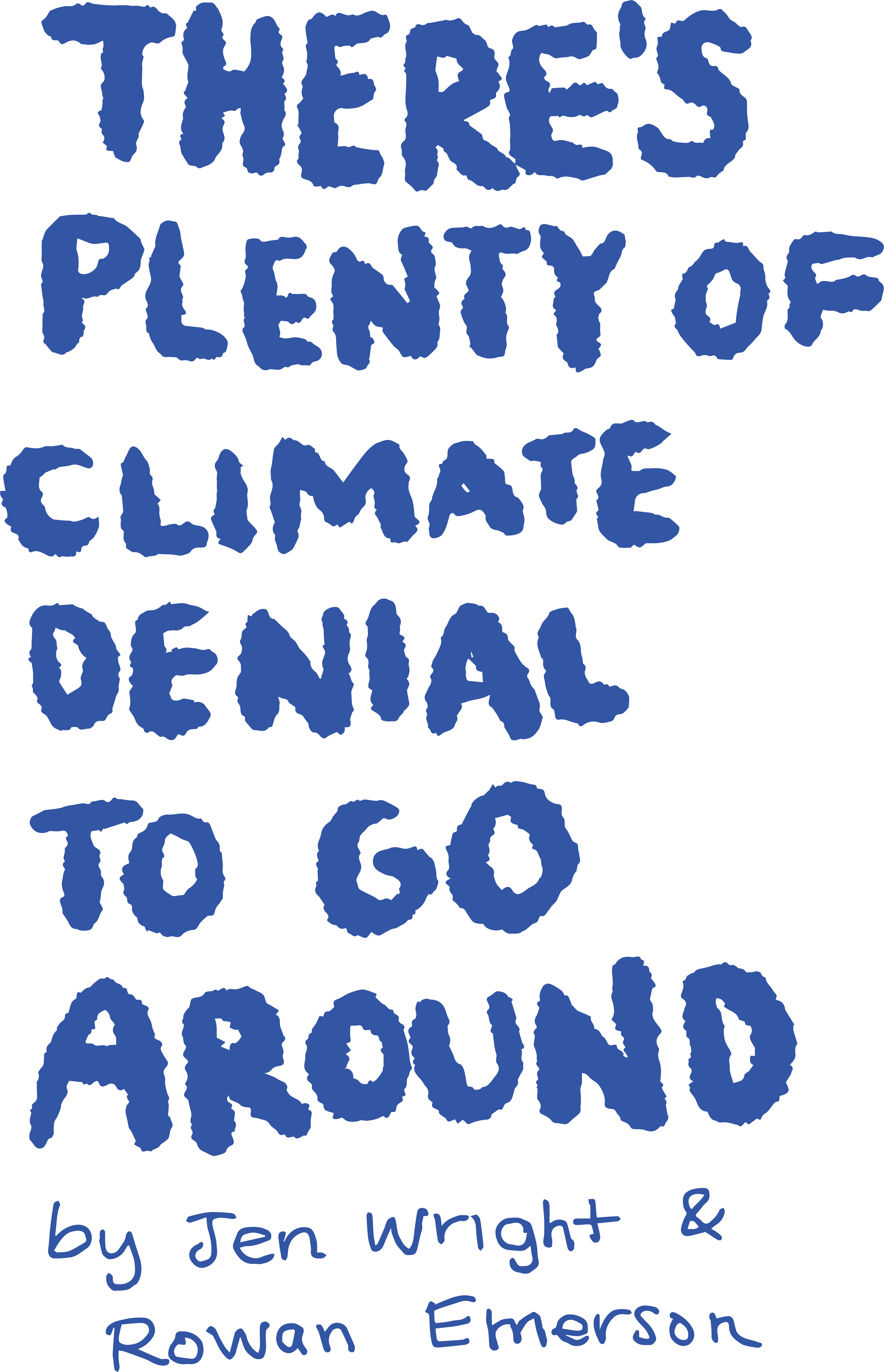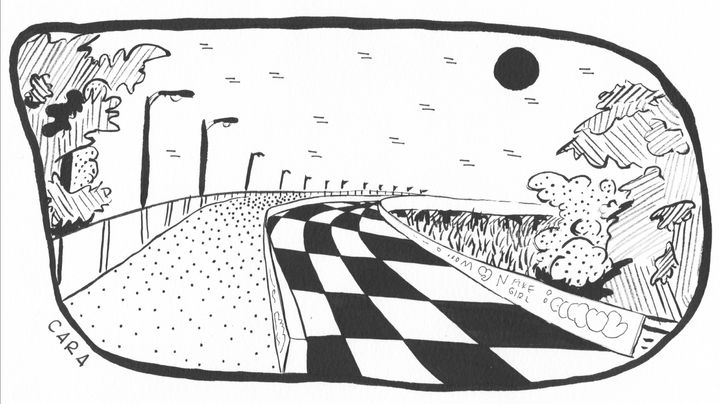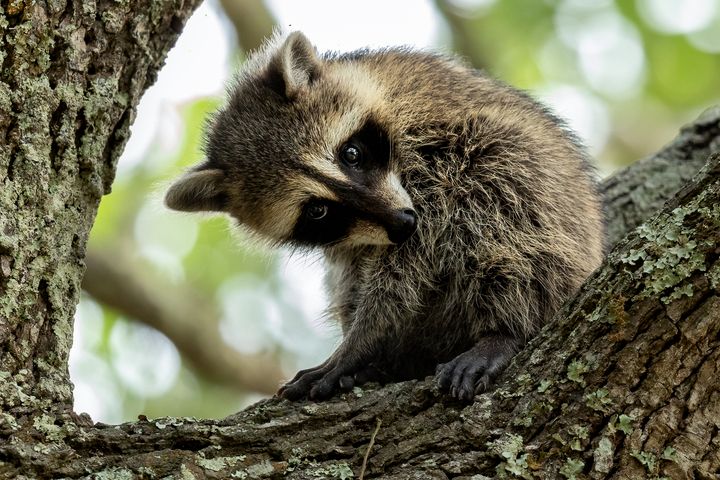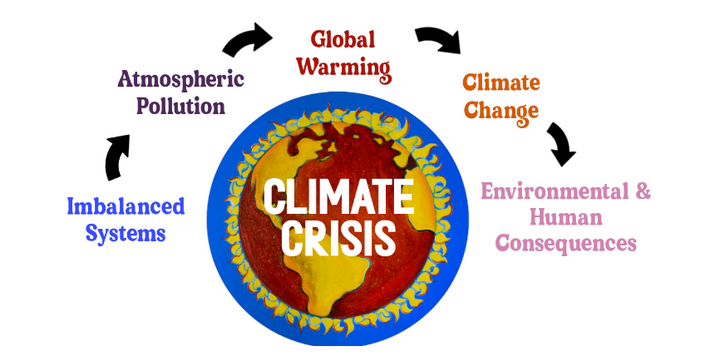Plenty of Climate Denial to Go Around
At the most basic level, climate denial is expressed as a sort of “business as usual” apathy, the inability or unwillingness to change one’s daily patterns of material consumption and disposal.

by Jen Cole Wright and Rowan Emerson
Climate denial.
For many, this conjures up the image of folks who either pretend like climate change is a complete “liberal” fabrication or who will admit that our climate is starting to rapidly change but maintain that this is a completely natural process—having nothing to do with the fossil fuel and animal agriculture emissions being pumped into the atmosphere.
Happily, this group is shrinking, thanks to the increase of press coverage and media headlines laying out the facts and dire consequences of climate change. But that’s just the tip of the iceberg, so to speak, when it comes to climate denial—which is like a disease that has spread throughout the entire population. Virtually no one is immune.
At the most basic level, climate denial is expressed as a sort of “business as usual” apathy, the inability or unwillingness to change one’s daily patterns of material consumption and disposal. Most of us continue to buy cheap crap we don’t need (in bulk!) from stores that ship things around the globe. It arrives in boxes and is wrapped in plastic. Maybe we recycle some of it, and maybe we even compost some of it—but by and large, we continue to live our lives as if the climate rapidly destabilizing all around us wasn’t a thing. We go to work, love our families, and lose an untold number of hours to scrolling through and streaming entertainment.
If we do anything politically to push for climate policy, it’s because we get an email in our inbox asking us to click on a button that sends an email to someone in charge. Our name, email, and phone number autofill, and an email, that we don’t actually read, gets sent. Maybe we donate some money to “the cause”, and maybe we even read an article or two about sea islands disappearing, floods inundating entire countries, or forest fires consuming millions of acres, and wonder when someone is going to “do something” about it. But then we look away, feeling an apathy nap coming on.
There are many of us who have managed to shed this apathy and move forward—some taking personal steps to change habits, others getting involved politically. We find cool ways to reduce food waste and energy use, and we join organizations that are fighting for change. Maybe we go to a meeting or two, and maybe we even join a rally or march, and make calls to our local, state, and national public officials. We look hopefully at new, innovative strategies being proposed for how to go “clean” and “green,” to mass produce solar panels, electric cars, carbon scrubbers, and vertical gardens. And we dream about the “business as usual 2.0” future right around the corner, where our lives (and the lives of our children and grandchildren) are a more “climate-friendly” version of what they are now.
Sometimes this vision is disturbed by a strong wave of dread at the sense of impending doom, but then we remind ourselves that it’s out of our hands. Surely our global leaders will save the day with forward-thinking, progressive policies? Or, if not, then surely our economic leaders will develop the technologies needed to avert total disaster?
Meanwhile, our political and economic leaders are busy trying to deny, ignore, avoid, or diminish the problem, or trying to find policy and technology solutions that will somehow:
- not cost taxpayers and/or corporate funders money,
- be acceptable to all interests involved, and
- not threaten their chances for re-election (or alternatively, corporate positions).
And beneath all of this is a deeper, more dangerous form of climate denial—i.e., our collective refusal to recognize and fully absorb the truth.
And what is that truth? That the lifeblood of our modern way of life is violence and addiction, fueled by suffering, and driven by an extractive, exploitative ideology so deadly that it has brought the entire planet to the brink of collapse in just 6,000 years (a mere 41 seconds in the geological timescale).
We seem unable to see what is right in front of us: that it was never in the nature of our global socio-political & economic framework to be able to sustain us. Slowly (and now more rapidly) destroying life was the only thing it was ever going to be able to do.
--
Given the nature of the global crisis that confronts us, it may be that climate denial is inevitable. But, maybe not. Whatever the case, we simply cannot continue living as we have—not even a “climate-friendly 2.0” version of it. And there is no genuine way forward unless we let the following truly sink in:
Our “business as usual” charade must be stopped in its tracks.
Our extractive and exploitative political, economic, and cultural practices must be abandoned at every level (local to global)—along with the idea that violence in the pursuit of a “better life” is ever justified.
We are not the only species on earth that matters. This planet is teeming with other living beings who have the right to co-exist with us and thrive on their own terms. Where now we see resources and property, we must come to see living ecosystems and sovereign beings. We have a responsibility to share a livable planet with them.
We are not the only point on earth’s timeline that matters. There are thousands of generations of humans and other beings yet to be born who matter just as much as we, the currently living, do. We have a responsibility to leave a livable planet for them.
--
Within each of us, there is a longing for the sacred—for a deep, living connection to the planet and to each other. A desire to lay down our weapons and heal the generations of trauma that we carry. A need to grieve and give thanks; to gather, listen, share, and imagine. A calling to restore—our lives, our communities, and our planet by birthing a regenerative, equitable, compassionate, and deeply relational path forward.
Such is the nature of the challenge we face. Are we willing, each of us, to dedicate what remains of our lives to this calling? To accept (and even joyfully embrace) that it will not come without sacrifice? Sacrifices we must be willing to make—in honor of those who have come before us, and of those who will one day follow.
If we wish to no longer be in denial, we must accept that there is nothing in our lives more important. No goal, idea, dream, or career matters more.
Indeed, for everyone currently living, there is nothing other than this.


